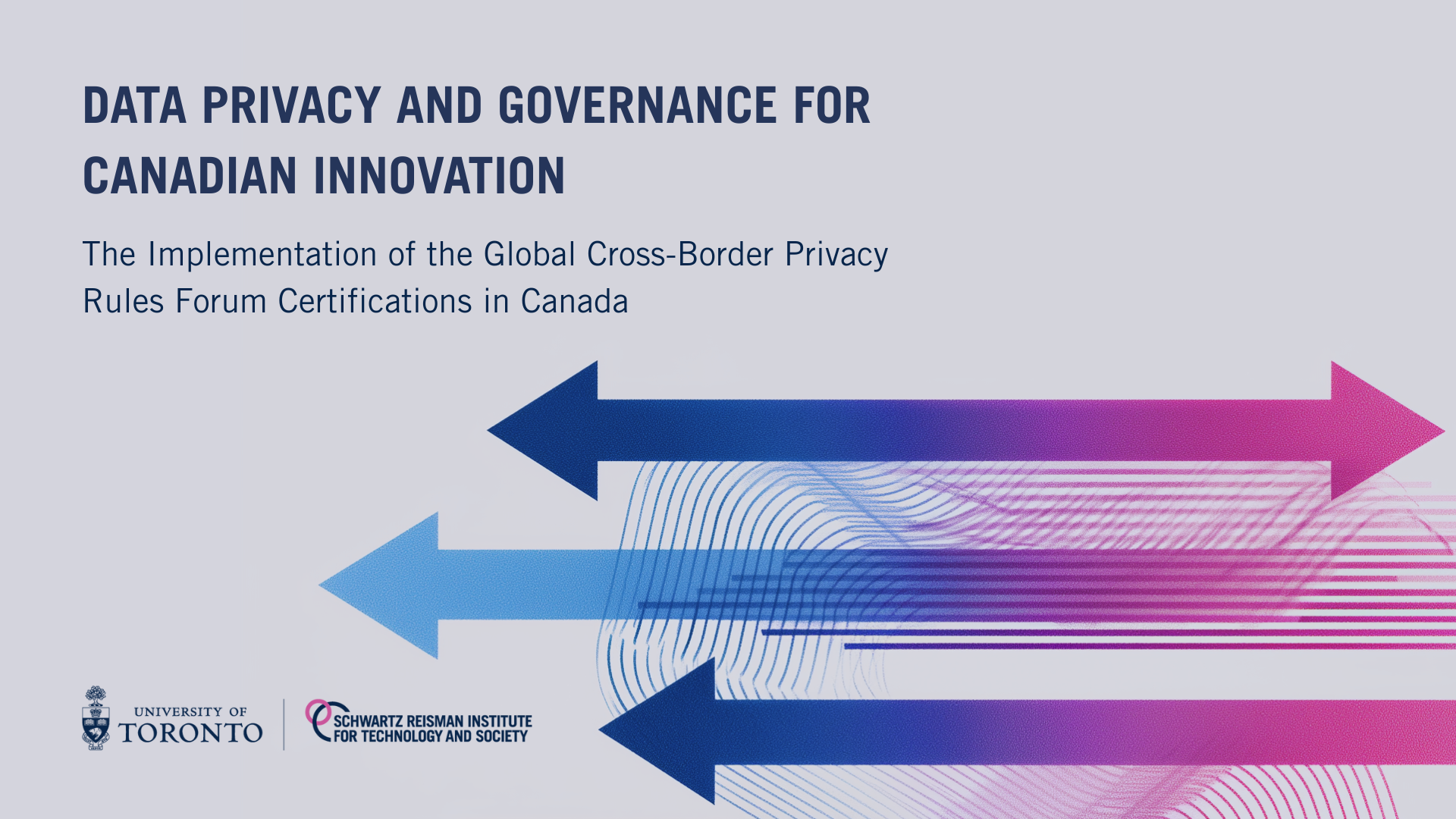
AI companions: Regulating the next wave of digital harms
From AI chatbots marketed as digital partners to voice assistants designed for intimacy, these systems promise connection while raising urgent questions about privacy, manipulation, and digital addiction.
Data privacy and governance for Canadian innovation: SRI responds to Canada’s implementation of global privacy certifications
The Schwartz Reisman Institute for Technology and Society responds to Canada’s consultation on global privacy certifications, outlining how CBPR and PRP can strengthen data protection, build public trust, and drive innovation in the digital economy.
Democracy rewired: SRI essay series explores safeguarding democratic values in the age of AI
In a new essay series, the policy team at the Schwartz Reisman Institute for Technology and Society examines AI’s impact on the values underpinning democratic societies and governance. The series explores how AI, if left unchecked, may impact democracy – offering both an opportunity to reaffirm democratic values and critically assess the role of AI governance and regulation.
Can a market-based regulatory framework help govern AI? New report weighs in
In April 2024, the Schwartz Reisman Institute for Technology and Society (SRI) hosted a workshop that brought together 33 high-level experts to explore the viability of regulatory markets. Over the course of the workshop, participants identified key challenges and worked through practical steps to move from theory to operationalization, laying the groundwork for a clear roadmap toward future governance. Their findings are captured in a new report (PDF) published today by SRI.
Future Votes: Safeguarding elections in the digital age
In October 2024, the SRI co-hosted a half-day event with The Dais and Rogers Cybersecure Catalyst to address election integrity, cyber security, and disinformation in the age of AI. The result was The Future Votes report, a reflection of key insights and recommendations for policymakers on how we can practically protect our democratic elections.
What’s Next After AIDA?
In the wake of AIDA’s death and with a federal election on the horizon, a key question has emerged: what’s next for Canada after AIDA?
Making big leaps with small models: What are small language models and super tiny language models?
The size of language models significantly impacts their adoption and usage. SRI Policy researcher Jamie A. Sandhu explores how small models are making big impacts in the field of AI.
Shedding some light on the SRI summer research assistant program
For the third consecutive year, the Schwartz Reisman Institute of Technology and Society opened its doors to a select group of Juris Doctor (JD) students through its summer Research Assistant (RA) program. Learn more about this year's research projects and how our RA partnership with the Future of Law Lab has opened new insights and experiences for students interested in AI governance.
What might the Canadian AI Safety Institute look like? Reflections on an emerging national AI safety regime
In April 2024, the Government of Canada pledged $2.4bn toward AI in its annual budget, including $50m for a new AI Safety Institute. What scope, expertise, and authority will the new institute need to achieve its full potential? We examine the early approaches of similar institutes in the UK, US, and EU.
From mourning to machine: Griefbots, human dignity, and AI regulation
Griefbots are artificial intelligence programs designed to mimic deceased individuals by using their digital footprint. Griefbots raise significant concerns about data collection and implications to human dignity. This article explores the digital afterlife industry and the ethical and legal challenges it presents, including a consideration of health, privacy, and property laws in Canada.
SRI working group investigating the concept of trust from across disciplinary perspectives
Can we trust the behaviours, predictions, and pronouncements of the advanced artificial intelligence (AI) systems that are seemingly everywhere in our lives? This question is being explored using a multidisciplinary approach by a working group led by SRI Research Lead Beth Coleman. Learn more about the group members and what they’re working on.
All about Bill C-70, the Canadian government’s attempt to counter foreign interference
Although foreign interference did not impact the results of Canadian elections in 2019 and 2021, it ‘stained’ the electoral process, undermining public confidence in Canada’s democratic institutions. What measures does Bill C-70 (“An Act respecting countering foreign interference”) take to bolster Canadian confidence in elections? And how might it apply to the use of AI in our elections?













